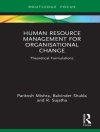In the 21st century, the world is faced with threats of global scale that cannot be confronted without collective action. Although global government as such does not exist, formal and informal institutions, practices, and initiatives—together forming ‘global governance’—bring a greater measure of predictability, stability, and order to trans-border issues than might be expected. Yet, there are significant gaps between many current global problems and available solutions. Thomas G. Weiss and Ramesh Thakur analyze the UN’s role in addressing such knowledge, normative, policy, institutional, and compliance lapses. The UN’s relationship to these five global governance gaps is explored through case studies of some of the most burning problems of our age, including terrorism, nuclear proliferation, humanitarian crises, development aid, climate change, human rights, and HIV/AIDS.
Inhoudsopgave
Contents
List of Boxes, Tables, and Figures
Series Editors’ Foreword Louis Emmerij, Richard Jolly, and Thomas G. Weiss
Foreword John Gerard Ruggie
Acknowledgments
Abbreviations
Introduction: The Problématique of Global Governance
1. Tracing the Origins of an Idea and the UN’s Contribution
Part 1. International Security
2. The Use of Force: War, Collective Security, and Peace Operations
3. Arms Control and Disarmament
4. Terrorism
Part 2. Development
5. Trade, Aid, and Finance
6. Sustainable Development
7. Saving the Environment: The Ozone Layer and Climate Change
Part 3. Human Rights
8. Generations of Rights
9. Protecting against Pandemics
10. The Responsibility to Protect
Notes
Index
About the Authors
About the United Nations Intellectual History Project
Over de auteur
Thomas G. Weiss is Presidential Professor of Political Science at The Graduate Center of the City University of New York and Director of the Ralph Bunche Institute for International Studies. Ramesh Thakur is the Inaugural Director of the Balsillie School of International Affairs, Distinguished Fellow of the Centre for International Governance Innovation, and Professor of Political Science at the University of Waterloo, Ontario.












